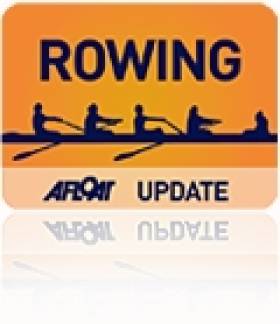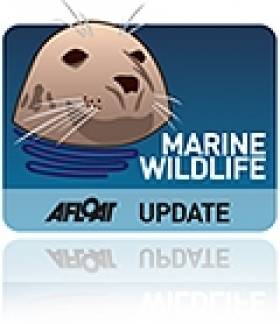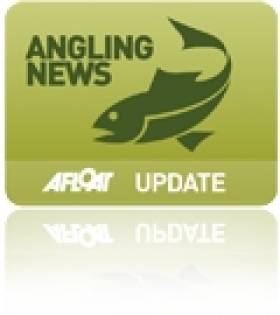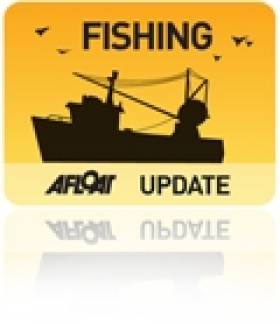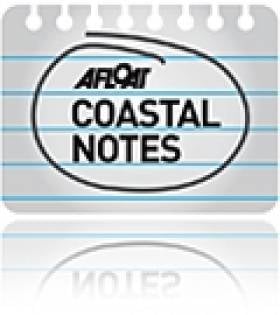Displaying items by tag: Gardai
Afloat.ie Reader Leads Gardai to 'Stolen' Welsh Yacht in Malahide
An Afloat.ie and Dun Laoghaire Marina appeal led Gardai to a yacht 'stolen' in North Wales last week being found in a north Dublin estuary.
The yacht was found within hours of the Afloat.ie story being published last Friday in Malahide, one of Ireland's most popular boating inlets.
Gardai have confirmed the yacht in question, a 38-foot ketch named 'Fram', has been recovered. It has been seized by Gardai and secured for technical examination a Malahide Marina. Gardai are investigating the theft and looking at local CCTV to see how and when the Vindo 38, long keel ketch came across the Irish Sea from Holyhead Marina.
Following an Afloat.ie report it is understood an eagle eyed reader spotted the yacht, with white hull and varnished topsides, recently moored in Malahide estuary. The reader noted it appeared very similar to the boat originally featured in social media by Dun Laoghaire Marina.
Anyone with information about the craft is asked to make contact with Malahide Garda Station.
More on the story here
Rowers Sleep at National Rowing Centre as Thieves Strike
#ROWING: Outboard motors worth up to €20,000 were stolen from the National Rowing Centre in Cork at the weekend. It is understood that rowers from the High Performance Programme were staying at the NRC when thieves took the engines, which were attached to catamarans and tinnies moored on the water. The raid did not come from the land.
Rowing Ireland has advised that anyone who becomes aware of 15HP Hondas and 20HP Yamahas being offered for sale should contact the Gardaí.
Garda Investigates Waterford Seal Shootings
#MARINE WILDLIFE - Newstalk reports that gardaí are investigaing the shooting of seals on a Waterford beach.
As previously reported on Afloat.ie, fears are mounting of an illegal cull of marine wildlife in the area after a seal and a dolphin were found dead from gunshot wounds within a day of two seals being discovered with similar wounds.
All four animals were found along the same stretch of Tramore Beach late last month.
A spokesperson for the Irish Seal Sanctuacy pointed the finger at an illegal cull allegedly carried out by local fishermen.
The Irish Wildlife Trust has welcomed the Garda investigation into the incidents, and has called on the public to report any relevant information they may have.
Man Escapes Jail for Illegal Fishing, Obstructing Officer
#ANGLING - A man narrowly escaped prison for obstructing a fisheries officer in a case taken by Inland Fisheries Ireland (IFI) at Carrickmacross District Court earlier this month.
Piotr Flaga - of Bog Road in Drogheda - was fined €450 by Judge Sean McBride after he was found to have set lines at a lake in Carrickmacross on 18 and 19 August last with the intention of taking coarse fish illegally.
The court heard that when apprehended by Assistant Inspector Ronan O’Brien, Flaga refused to co-operate and would not give his name and address. He then obstructed Asst Insp O’Brien by moving his vehicle towards him in a bid to escape when questioned.
Gardai were called to the scene and subsequently Flaga was issued with two summons.
Flaga entered a guilty plea and was convicted under Sections 301 and 308 of the 1959 Fisheries Act. He was further charged for breach of byelaw 595 of 1977 in relation to fishing in fresh water for coarse fish by means other than rod and line.
The defendant was fined a total of €450 with five months to pay with 14 days imprisonment in default. Some €500 in costs were also awarded to Inland Fisheries Ireland.
Judge MacBride acknowledged Flaga's public apology to Asst Insp O'Brien, but emphasised that any person who came before him in future for a similar offence would face imprisonment.
Search for Missing Cork Man Set to Resume
#NEWS UPDATE - The search was set to resume this morning for a missing man feared drowned in Cork city, the Irish Examiner reports.
Search efforts were mounted last night after the man's family notified gardaí. The man, believed to be in his 60s, is thought to have disappeared from Ballincollig Regional Park in the west of the city, where his car and phone were found.
Waterford's Irish Coast Guard helicopter joined the search along with gardaí and the Crosshaven coastguard, concentrating on the River Lee where water levels were high due to heavy rain.
Probe into Death of Seaman at Waterford Port
An investigation has been launched into the death of a seaman in Waterford Port yesterday.
The Irish Independent reports that the 51-year-old sailor from the Philippines fell more than five metres after being struck by machinery.
He had been tying down a load on the cargo ship MV Scot Pioneer when the incident occurred around lunchtime yesterday. He later died from his injuries.
The Health and Safety Authority and gardaí went to the scene, and RTÉ News reports that a post-mortem was set to take place yesterday afternoon.
The Port of Waterford Company also issued a statement extending its sympathies to the man's family and colleagues.
Search for Missing Kayaker to Resume
Emergency services were set to decide this morning whether to resume the search for a kayaker who went missing on Carlingford Lough earlier this week, UTV News reports.
Area man Mark McGowan, 37, was last seen kayaking in the lough at 7.30pm on Monday evening.
His blue kayak was spotted by the Irish Coast Guard on Tuesday at Killowen Point, on the north side of the lough.
Dundalk Gardaí are co-ordinating the cross-border search operation, which was interrupted by bad weather early yesterday.
View Larger Map
Also assisting are the Irish rescue helicopter, Greenore coastguard, Kilkeel's RNLI lifeboat, the south Down coastguard team and the Community Rescue Service.
Meanwhile, the PSNI has appealed for anyone who might have information on McGowan's disappearance to get in touch.
McGowan is described as 5'7" tall, medium build, with a clean shaven, tanned complexion and short bleached blonde hair. He was last seen wearing a red jacket, blue jeans and white trainers.
Fishing Vessel Detained in Cork
The Irish Times reports that the Naval Service detained a Spanish-registered fishing vessel off the Clare coast in the early hours of Tuesday morning.
The vessel was escorted by the LE Niamh to Castletownbere in Co Cork, where it was handed over to gardaí in relation to an alleged breaching of fishing regulations.
No other information is yet known but Afloat.ie will update as details arise.
Gardaí Renew Appeal for Witnesses to Liffey Death
Dublin Gardaí are still appealing for information on the drowing of a Co Tyrone man in the River Liffey last weekend.
RTÉ News reports that Aiden Mullen, 35, had been socialising in the city after the All-Ireland Football Championship match at Croke Park on Saturday 30 July.
At around 3.20am last Sunday morning, Mullen was waiting with his brother and friends on Burgh Quay for taxis home when he broke away from the group and approached the river wall.
He was last seen falling into the water by his brother, who jumped in to assist him. Both men, as well as three passers-by who entered the water to help, got into difficulty.
Dublin Fire Brigade rescued four from the river, but Mullen's body was discovered shortly after.
Gardaí say a number of witnesses have already come forward, but they would like anyone else with information to contact them at Pearse Street Garda Station.
GardaI Investigate U-boat Looting in Cork
Cork gardaí are investigating the looting of items from a First World War U-boat recently discovered off Roches Point.
The Irish Times reports that the submarine also appears to have been damaged by the illegal salvagers.
A spokesperson for the underwater archaeology unit of the Department of Arts, Heritage and the Gaeltacht confirmed that reports had come in from divers regarding disturbance of the wreck site - noting attempts to remove parts of the structure, and details of human remains.
Divers with the unit were expected to assess the site as soon as weather permits.
Items believed to have been taken include sailor's attire belonging to the crew of the 49-metre German vessel UC-42, which sank in 1917. The German embassy has indicated its "legitimate interest" in the preservation of the wreck.
The Irish Times has more on the story HERE.



























